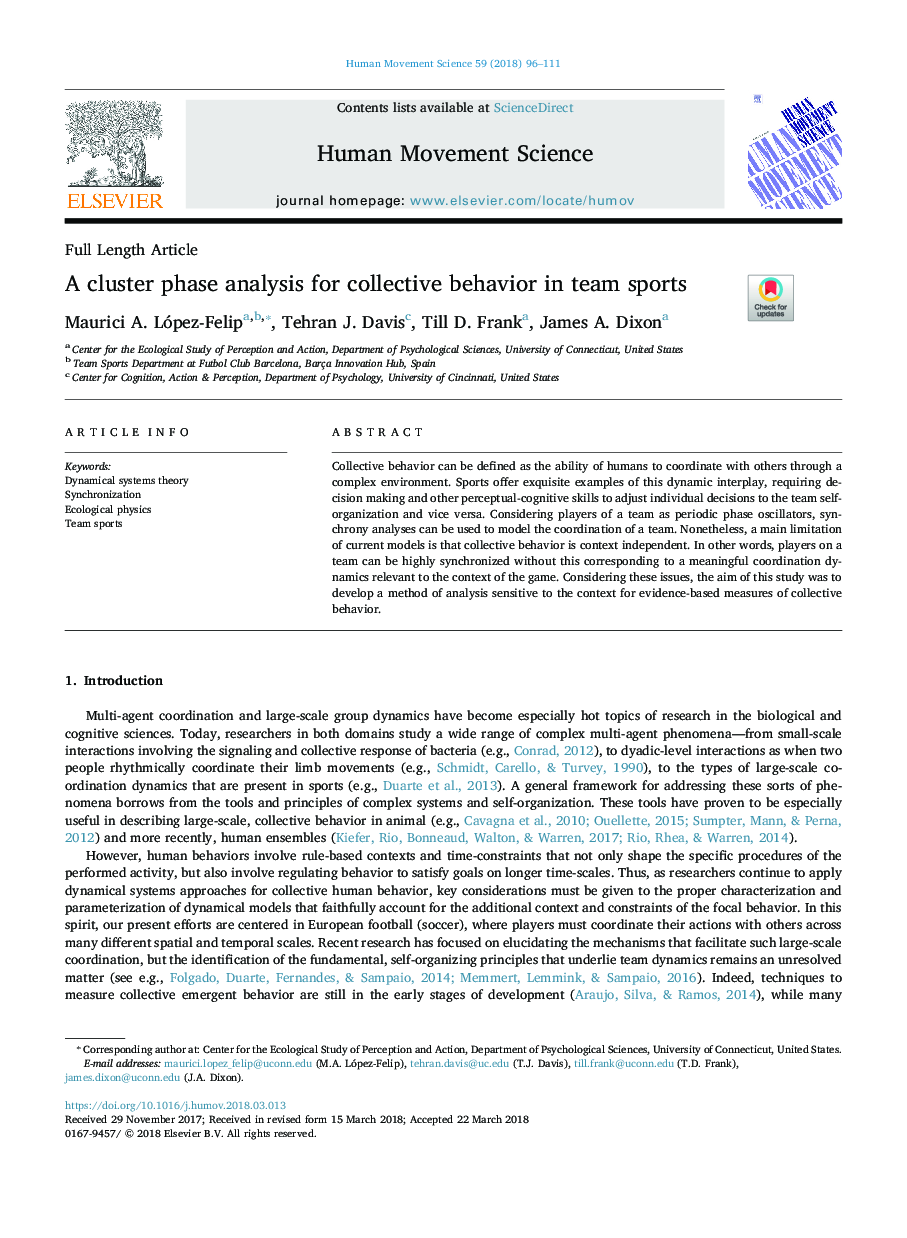| Article ID | Journal | Published Year | Pages | File Type |
|---|---|---|---|---|
| 7290895 | Human Movement Science | 2018 | 16 Pages |
Abstract
Collective behavior can be defined as the ability of humans to coordinate with others through a complex environment. Sports offer exquisite examples of this dynamic interplay, requiring decision making and other perceptual-cognitive skills to adjust individual decisions to the team self-organization and vice versa. Considering players of a team as periodic phase oscillators, synchrony analyses can be used to model the coordination of a team. Nonetheless, a main limitation of current models is that collective behavior is context independent. In other words, players on a team can be highly synchronized without this corresponding to a meaningful coordination dynamics relevant to the context of the game. Considering these issues, the aim of this study was to develop a method of analysis sensitive to the context for evidence-based measures of collective behavior.
Related Topics
Life Sciences
Neuroscience
Cognitive Neuroscience
Authors
Maurici A. López-Felip, Tehran J. Davis, Till D. Frank, James A. Dixon,
